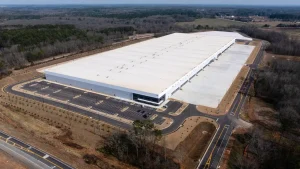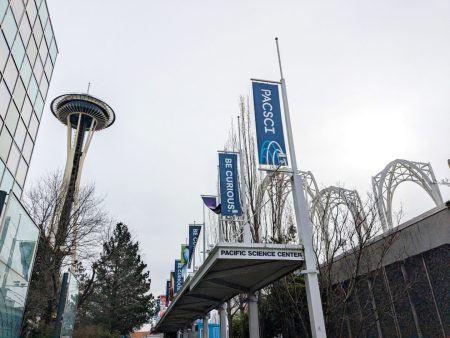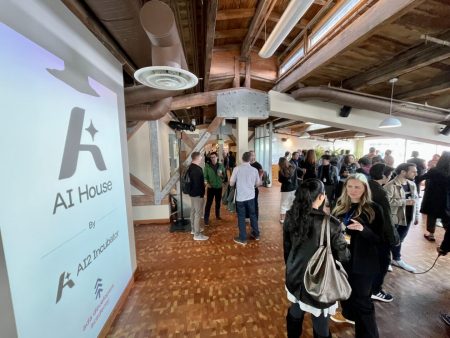Seattle Emerges as a Key Player in the AI Funding Landscape
In a rapidly evolving technological landscape where artificial intelligence dominates investment conversations, Seattle is carving out its place as a significant hub for AI innovation and funding. According to recent data released by financial technology company Carta, Seattle now ranks fourth nationally in AI funding, capturing 5.1% of AI-related investments across the United States. This positioning reflects the city’s growing importance in the tech ecosystem, particularly as investors continue to channel unprecedented amounts of capital into AI startups throughout the country. While this percentage may seem modest when compared to the dominating presence of California’s Bay Area, which commands a staggering 51% of AI investments, it nonetheless establishes Seattle as a formidable contender in the AI race, trailing only behind New York (11%) and Boston (5.5%) outside of Silicon Valley.
The broader funding landscape reveals Seattle’s overall strength in the startup ecosystem, ranking sixth nationally with $3.46 billion, or 3.9% of the total $104 billion invested in U.S. startups between Q3 2024 and Q2 2025. This comprehensive analysis from Carta, which tracks investments across seven key sectors including Software as a Service (SaaS), hardware, biotech, health tech, fintech, and consumer technologies in addition to AI, showcases Seattle’s varied technological strengths. The city demonstrates particular robustness in the SaaS sector, where it claims the third position nationally with 5% of investments, reflecting its historical strength in cloud computing and enterprise software. Additionally, Seattle holds respectable positions in biotech (fifth with 3.8%) and health tech (ninth with 3.1%), though it falls short of breaking into the top ten for fintech and consumer technology sectors.
Despite these encouraging indicators, Seattle faces challenges in translating its potential into headline-grabbing AI success stories. A notable absence of Seattle-based companies among PitchBook’s top 100 AI startup funding deals this year suggests a gap between the region’s theoretical capabilities and its actual performance in securing major AI investments. This discrepancy presents both a challenge and an opportunity for Seattle’s tech community, which must work to better leverage its inherent advantages to compete more effectively on the national stage. The situation seems paradoxical given Seattle’s reputation as a major AI hub, bolstered by the presence of tech giants like Amazon and Microsoft, along with research institutions that contribute to a rich pool of engineering talent specifically suited to AI development.
The foundation for Seattle’s potential AI dominance remains strong, centered primarily on its exceptional concentration of engineering talent. This human capital represents the essential ingredient for building successful companies in the AI era, where specialized skills in machine learning, data science, and computational systems are at a premium. The city’s established tech ecosystem, with its mixture of industry veterans, experienced entrepreneurs, and fresh university graduates, creates a fertile environment for AI innovation. This optimism is reflected in the sentiments of local entrepreneurs, investors, and startup leaders who, despite current statistical rankings, maintain confidence that Seattle’s most significant contributions to the AI revolution still lie ahead. Their belief suggests that the city may be in a developmental phase, building capacity that will eventually translate into more substantial market recognition and investment attraction.
Carta’s data provides valuable insight into these funding patterns, drawn from the company’s platform which serves as a vital tool for startups managing their capitalization tables. As a significant player in the financial technology space, Carta’s analysis carries substantial weight in understanding investment trends and regional competitive dynamics. The company itself demonstrates confidence in Seattle’s business environment, recently expanding its presence in the city by moving into a spacious 23,500-square-foot office in downtown’s Columbia Center. With approximately 135 employees in the Seattle region, Carta’s investment in physical infrastructure signals ongoing belief in the area’s growth potential, particularly as it relates to servicing the startup ecosystem that drives innovation in AI and other technology sectors.
Looking forward, Seattle’s position in the AI funding landscape represents both an achievement and a call to action. While ranking fourth nationally is commendable, the significant gap between Seattle’s 5.1% and the Bay Area’s dominant 51% indicates substantial room for growth. The challenge for Seattle will be to capitalize on its strengths—outstanding technical talent, established tech giants that can spin off innovation, and a growing venture capital presence—while addressing weaknesses in transforming these advantages into funded AI enterprises that capture national attention. The current rankings should serve as motivation rather than satisfaction, pushing Seattle’s technology community to strengthen connections between research, entrepreneurship, and investment channels. If successful in this endeavor, Seattle may well fulfill the optimistic predictions of local leaders who see the city’s best AI contributions—and consequently its most substantial AI funding—as developments still on the horizon rather than fully realized achievements.















